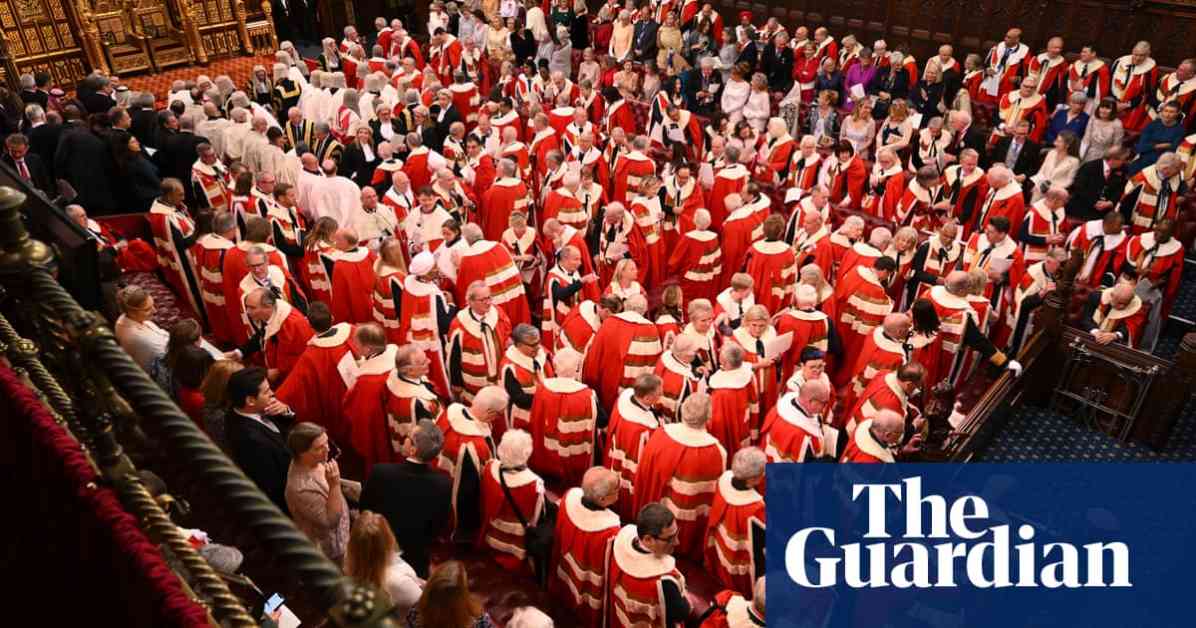The Liberal Democrats are making a bold move to reshape the House of Lords by pushing for a completely elected upper chamber. They plan to amend the government’s bill, which aims to ban hereditary peers from inheriting their seats in parliament, in order to force a vote on this significant change.
While the government’s bill is expected to pass easily in the House of Commons, the Liberal Democrats are determined to challenge the status quo. Their proposed amendment would eliminate the practice of appointing new peers based on patronage, instead advocating for a fully elected second chamber.
The current system of appointing peers has resulted in individuals with close ties to prime ministers receiving seats in the House of Lords. The Liberal Democrats argue that this undermines public trust in the political system and call for a more democratic approach to the composition of the upper chamber.
Labour previously expressed a desire to transition to an elected second chamber, but their stance has since shifted to focusing on abolishing hereditary peers and implementing an age limit. The Liberal Democrats, on the other hand, remain steadfast in their commitment to genuine democratic reform.
Sarah Olney, the Lib Dem Cabinet Office spokesperson, emphasized the urgent need for change, stating that the House of Lords must undergo significant democratic reform. She highlighted the importance of restoring public trust in politics, especially in the aftermath of the previous Conservative government’s lack of interest in reforming the upper chamber.
Nick Thomas-Symonds, the paymaster general, echoed these sentiments, describing the current system as outdated and emphasizing the need for the House of Lords to reflect modern Britain. He praised the government’s bill as a progressive first step towards much-needed change.
As the debate unfolds in the House of Commons, all eyes will be on the Liberal Democrats’ proposed amendment and the government’s response. The outcome of this vote could have far-reaching implications for the future of the House of Lords and the overall democratic landscape of the UK.
It is clear that the Liberal Democrats are determined to challenge the status quo and push for meaningful reform. Their efforts represent a crucial step towards a more transparent and accountable political system, one that truly reflects the will of the people. Only time will tell whether their vision for a fully elected upper chamber will come to fruition.












